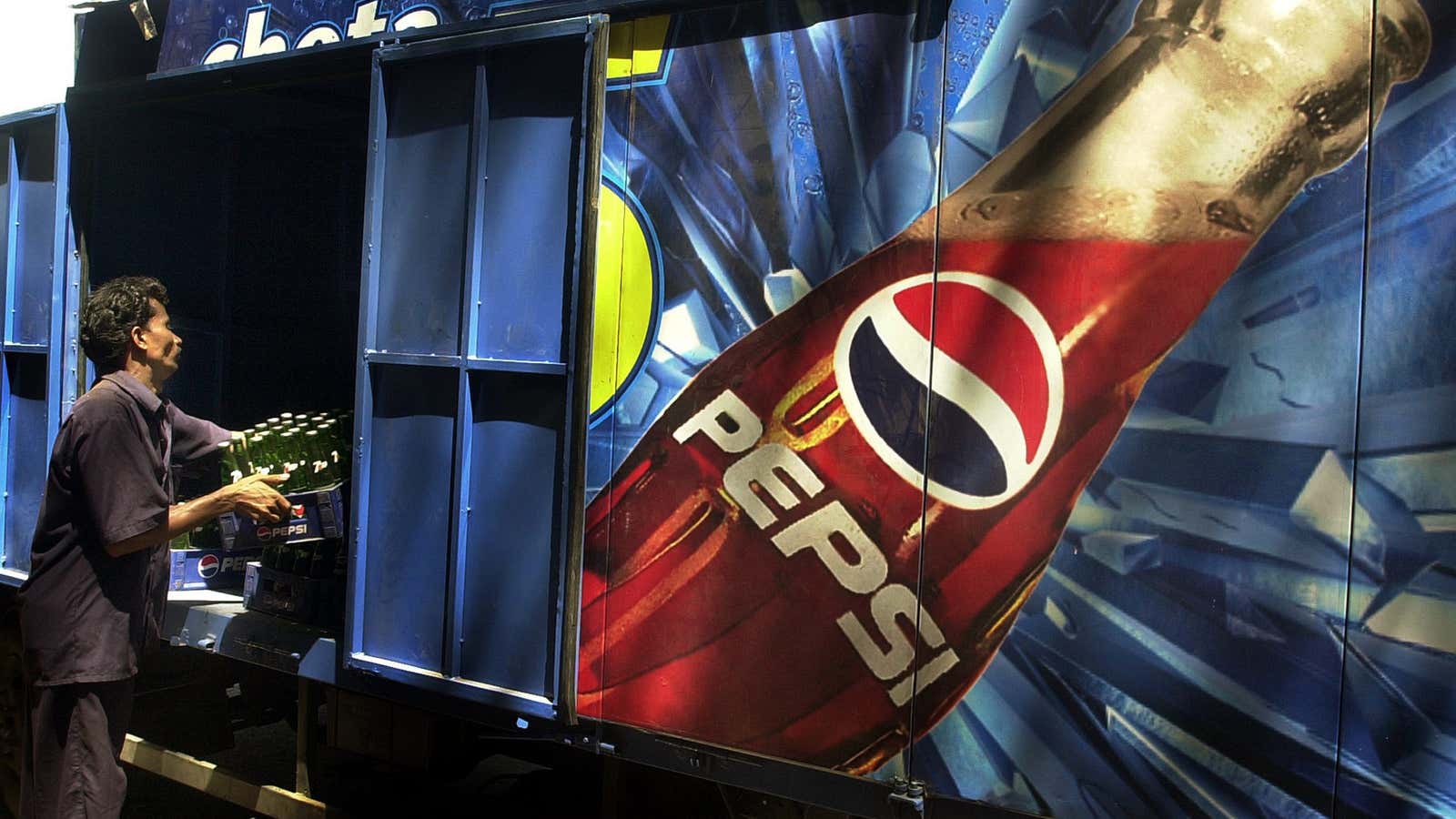Consumers in Asia’s third-largest economy are shying away from colas, and PepsiCo is ready with healthy alternatives.
Along with rival Coca-Cola, PepsiCo India has thrived for decades by selling bottles of fizzy beverages to Indians—it controls a 22.2% share of the country’s soft-drinks market. But with rising incomes and exposure to global trends, colas alone won’t make the cut anymore.
So, the local arm of the New York-based maker of soft drinks and juices such as Pepsi, Mirinda, Tropicana, and Gatorade is rapidly expanding its portfolio of non-fizzy drinks. It is also slashing the sugar content in its products.
“Among Indian consumers who always had carbonated soft drinks as their default option, choices are proliferating even as per capita consumption of beverages remains low,” Vipul Prakash, vice-president for beverages at PepsiCo India, told Quartz. While consumption of fizzy drinks is yet to peak in the country—Indians consume 5.9 billion litres a year, which is 1/20th of US consumption—consumers are already moving on to juices, flavoured water, dairy beverages, and value-added drinks.
“It’s like they’ve actually skipped the entire evolution (of soft drinks) and are asking for more choices,” said Prakash.
Over the last three years, PepsiCo India has launched more than a dozen products under its existing brands. A bulk of these were under the hydration, low-calorie, and dairy categories: 7-Up Revive, Pepsi Black, Tropicana Essentials, Quaker Oats+Milk dairy drinks, a stevia-based 7-Up, and the latest low-calorie vitamin water, Aquafina Vitamin Splash.
This is in line with its global mandate to reduce sugar content in sodas by 2025, Prakash said. “We will not launch a product with over 100 calories in India,” he said, adding that going forward consumers can expect more launches in the hydration and juices category from the company.
At the same time, innovations in sodas have mostly been driven by smaller-sized bottles.
India’s soft-drinks market is pegged at over Rs60,000 crore annually, Euromonitor estimates. Once the dominant category, carbonated or fizzy beverages now form 46% of this market, growing at between 4% and 5% annually. While rural India, which contributes between 30% to 40% of sales of all beverages, continues to drink colas and sugary sodas, it is the urban consumer’s preferences that are changing.
And this is giving room for other beverages to grow. Prakash added that beverage categories such as hydration, juices, and dairy are growing at a much faster clip in India. And this is where the company is likely to continue with more innovations over the next few years.
